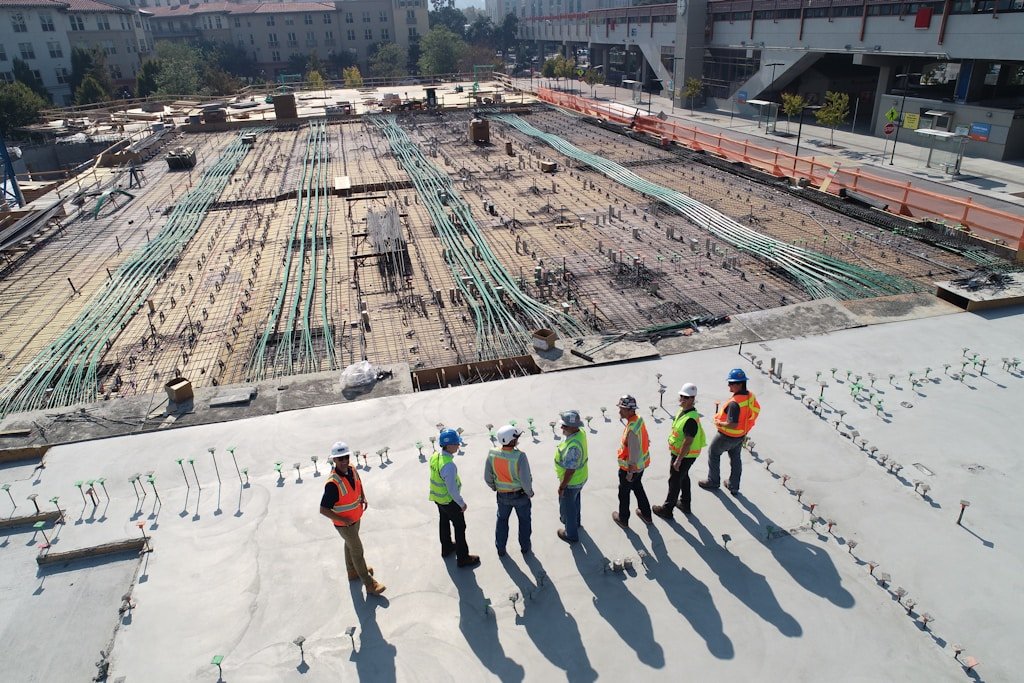Hiring a Building Company: 9 Mistakes to Avoid

You’ve got the budget. The idea’s been brewing for months. Plans are taking shape, and you’re nearly ready to begin. But before you bring in the builders, stop and think. Choosing the wrong company can derail the whole project. If you want to avoid stress, spiralling costs and patchy workmanship, here’s what you shouldn’t do.
Paying attention only to the price
It’s easy to get swept up in chasing the lowest quote, especially when the numbers start stacking up. But don’t fall into the trap of assuming cheaper equals better. A rock-bottom price often comes with cut corners, poor materials or rushed labour. On the other hand, the highest quote doesn’t always guarantee excellence either. The goal is balance—value for money, not simply the cheapest or the flashiest. Look closely at what’s included and compare like for like.
Failing to get quotes from multiple companies
You wouldn’t buy a car after glancing at just one listing. So why gamble with a building project that could cost thousands more? Comparing at least three quotes helps you spot glaring inconsistencies, unexpected extras or offers that seem too good to be true. And it gives you insight into how each firm presents its building services, communicates with potential clients, and respects your time. The more quotes you gather, the better equipped you’ll be to make a rational decision, not an emotional one.
Not checking credentials
You wouldn’t let someone fix your boiler without being Gas Safe registered, right? The same principle applies to builders. Always check for trade memberships, insurances, and appropriate certifications. It’s not just box-ticking—it protects you legally and financially. And while it might feel awkward to ask for evidence, any professional worth hiring will understand. If someone gets defensive when you request paperwork, take that as a sign to keep looking.
Skipping references and reviews
This one catches too many people out. A slick website or a nice conversation doesn’t mean the company delivers. Ask to speak to previous clients. Look through independent review sites, not just the testimonials cherry-picked on their homepage. People don’t forget how a builder left them feeling once the job was done. If you’re planning small glass extensions, for instance, you’ll want to hear from someone who’s actually had one completed—what went well, what didn’t, and whether they’d use the same company again.
Not getting a written contract
Verbal agreements disappear when things go wrong. If it’s not written down, you’ve got nothing to fall back on. A proper contract should include scope of works, start and end dates, responsibilities, dispute resolution terms—and, crucially, the price. Without a clear agreement, misunderstandings can turn into major disputes. You might trust the builder now, but trust isn’t a substitute for legal protection.
Starting without a timeline
You’re eager to get things underway, which is understandable. But launching into work without a realistic timeline is a mistake. Not only can it disrupt your daily routine, but it also makes it harder to hold anyone accountable. A phased schedule helps everyone stay on track and manage expectations. Whether you’re planning significant home improvements or a straightforward refit, a reliable timeline is just as important as the materials used on-site.
Not setting a defined payment schedule
Never hand over a huge sum upfront. A staged payment structure keeps the project grounded and your money protected. For something like a rear extension, payments could be broken down—foundation poured, one stage. Structure up, another stage. Roof sealed, next payment. This way, both sides stay accountable. You’re showing goodwill and commitment, and they’re showing up with work completed properly and on time.
Ignoring poor communication
If they’re slow to reply before the job starts, don’t expect miracles once the dust starts flying. Communication is a reliable indicator of how the project will go. Are they clear? Are they listening? Do they explain things without jargon? You’ll be working with this team in and around your home, possibly for weeks. Miscommunication breeds frustration, missed deadlines, and mounting costs. If something feels off in the early emails or calls, it’s usually a warning sign.
Not trusting your instincts
At the end of the day, logic matters—but gut feeling does too. If something doesn’t sit right, don’t brush it aside. Maybe it’s the rushed quote, the vague answers, or the overly pushy attitude. You’ll be investing time, money, and trust into this company, so don’t ignore those small red flags. You’re allowed to walk away and find a team who makes you feel confident and secure in your choice. Better a few extra days searching than months of stress trying to fix the wrong decision.






